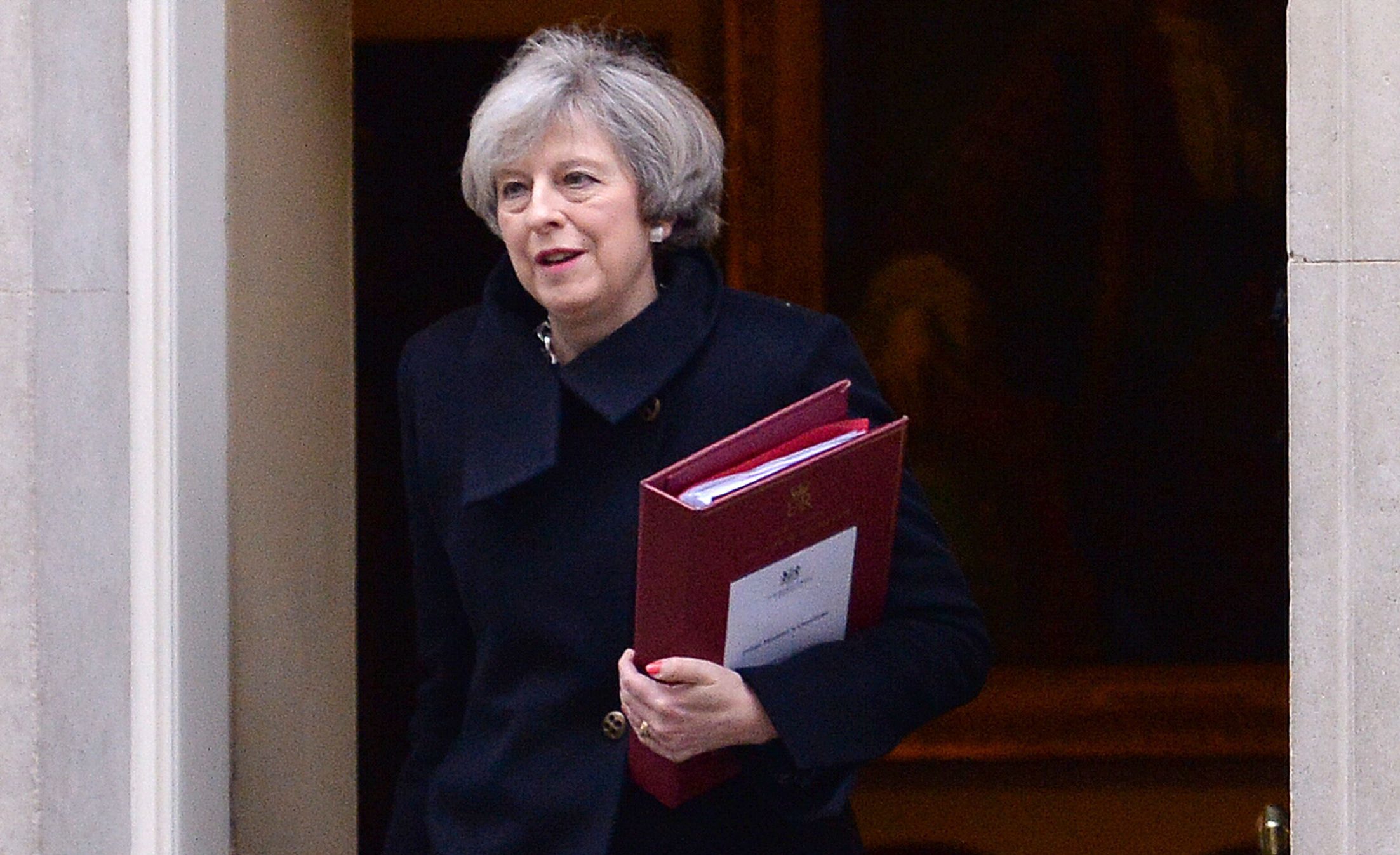
SUPPORT for Scottish independence has increased following the Prime Minister’s “hard Brexit” speech, a new poll has revealed.
The BMG survey for the Herald shows 49% of Scots back independence while 51% want to stay in the UK, when the “don’t knows” are excluded.
When the 10% undecided are included, 43% would vote Yes and 45% No.
The gap has narrowed since a similar poll last month which showed 45.5% were Yes supporters and 54.5% backed No, almost the same result as the 2014 referendum of 45% Yes to 55% No.
Since last month’s poll, Theresa May confirmed her plans to take the UK out of the single market in her Brexit speech.
However, the latest survey shows most Scots do not want another independence referendum before the UK leaves the EU, with 48% against, 38% for and 13% undecided – making 56% against and 44% for when the “don’t knows” are removed.
The poll results were revealed as MPs prepare to vote on giving the Prime Minister the power to start Britain’s divorce talks with the European Union, and a day after MSPs rejected the triggering of Article 50 in a symbolic vote at Holyrood by 90 votes to 43.
Michael Turner, research director at BMG, said the poll paints a “mixed picture” with Brexit “undoubtedly having an effect on support for the principle of independence and on what terms”.
He said: “It could easily be the case that since Theresa May’s January speech, a small proportion of those holding out for a softer form of Brexit, with Scotland more involved in the deal-making process, have come to the conclusion that for them, any deal is unlikely to better an independent Scotland, and have reverted back to support for independence.
“These results just go to show how critical the Brexit negotiations will be for the future constitutional arrangements of Scotland and the UK. It will be interesting to see if this support is sustained, or simply a knee-jerk reaction to May’s ‘hard Brexit’ speech.
“Interestingly, support for independence appears to be up significantly among Remainers, up six points to 51% since December.
“Although these results suggest that opposition to independence is by no means an insurmountable task for Nicola Sturgeon’s SNP, they do imply that she is a fair way off from her ‘red-lines’ of clear and consistent support.”
SNP business convener Derek Mackay said: “As Scotland is driven ever closer towards a hard Brexit cliff-edge by a right-wing Tory Government acting against our interests, this poll shows a virtual dead heat on the question of independence.
“If the Tories continue with their blind pursuit of a hard Brexit, ignoring the clear view of an overwhelming majority of people in Scotland, then more and more people will see independence as the option delivering certainty and stability.”
Former Scottish first minister Alex Salmond tweeted the poll, adding “Gameon…”
Scottish Labour’s Westminster spokesman Ian Murray called on the SNP to rule out another independence referendum.
He added: “Rather than working constructively, the SNP is instead fixated on a second independence referendum. But as the latest opinion poll shows, people in Scotland are very clear that they don’t want another referendum.”
Scottish Liberal Democrat MSP Alex Cole-Hamilton said the poll shows no “meaningful shift” in support for independence and a “great reluctance among Scottish people to thrash this out again”.
Scottish Greens MSP Ross Greer said: “Considering there’s been no official Yes campaign since 2014 and a relatively sustained campaign against, it’s remarkable that support for independence has held steady.
“However, this poll, up three points since the last BMG poll, highlights the impact of Westminster’s refusal to seriously consider Scotland’s vote to stay in the EU or any compromise proposals which have been presented to them.”
BMG Research interviewed 1,067 adults living in Scotland between January 26 and 31.

Enjoy the convenience of having The Sunday Post delivered as a digital ePaper straight to your smartphone, tablet or computer.
Subscribe for only £5.49 a month and enjoy all the benefits of the printed paper as a digital replica.
Subscribe